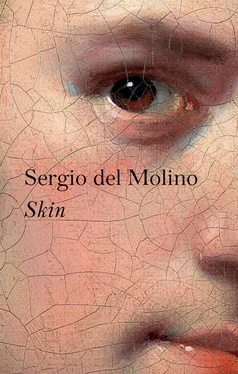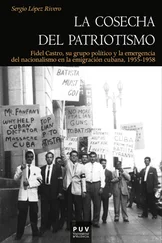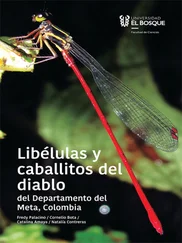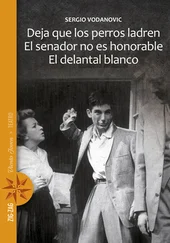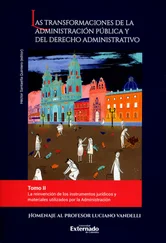Stalin summered in Sochi, and since Stalin was the USSR, all of the USSR went and summered there too. That small town, which until the mid 1800s didn’t even appear on the maps of Russia, began to grow and grow. On the seafront, until then no more than a dirt track at the foot of the mountains, big buildings started to be thrown up. Sanatoria of the utmost healthfulness; hotels with liveried bellboys and concierges who spoke French; and on the streets black Packards with thick glass in the windows, chauffeurs who opened the door for you and knew to stand very erect and very silent as the ladies got in or out of the vehicle.
Like the town, the dacha grew and grew until the small, no-frills place of Mikoyan’s promises was more like a mini mansion, comprising several buildings and extensive wooded gardens. Wicker armchairs and a large marble table were set up between the trees; the table was never without piles of documents and papers, because comrade Stalin never stopped.
Though it can be sweltering in Sochi during the summer, with temperatures touching thirty degrees and extreme humidity, Iosif Vissarionovich would sit on his wicker throne in long trousers and a shirt buttoned all the way to the top. Sometimes, a white shirt with pockets. At others, a green military shirt. Cool and roomy, and made, like his trousers, of lightweight fabrics, but never a button undone. There are no photos of him either in shirt sleeves or bare-chested, unlike the fierce Bolsheviks at his side, sometimes stripped to the waist and bathed in sweat, playing one sport or another.
Those Caucasus-reared Bolsheviks, country folk through and through, got into the habit of bathing naked, but Stalin skipped these manly get-togethers. If you wanted his ear, the best thing was to take a seat at his marble table in one of the wicker armchairs, or go walking in the woods with him, or, better still, join him for one of his never-ending dinners. This is not to say that the vozhd did not feel the heat like any other Caucasian Bolshevik, or that he did not enjoy the feeling of cold water on his skin. This was why he had a private pool built, quite shallow and conveniently tucked away behind a fence, with nobody permitted to enter.
Artyom, my boy, come and bathe with your old man, tell me what you’ve done today.
The early adolescence of Artyom Fyodoryvich Sergeyev coincided with the early 1930s. His father was Fyodor Sergeyev, one of the Bolshevik revolution’s most intrepid characters, an intimate of Stalin’s from the savage days of agitation and a comrade-in-arms in the civil war. Much more than a brother. Dauntless Fyodor died, unfortunately, in the stupidest, least honourable way possible for a warrior of his mettle: during the testing of the Aerowagon, a Soviet invention that aimed to make high-speed trains by fitting them with aircraft engines. Naturally, the Aerowagon derailed almost as soon as it set off, killing everyone on board.
Artyom was barely three months old when he was orphaned, and it was Lenin himself who told Stalin that he ought to adopt him. Stalin thereby became his father, and did truly love him as much as his own sons. Or possibly even more, because, as Artyom grew up, the impassioned features of Fyodor, whom Stalin missed so sorely, began to appear in his face.
Artyom, my boy, stop what you’re doing and come and bathe with your old man.
Behind the screen, the vozhd took off his large shirt and pale summer trousers, and then everything else. No record remains of what Artyom then saw: what was imprinted on his adoptive father’s skin. He never mentioned it, because it made no impression on him. The bodies of our parents are background noise, familiar scenery. We don’t even see them. Their wrinkles, callouses or flabby parts hold neither surprise nor intrigue for us. For Artyom, Stalin in the swimming pool was not a Soviet state secret that only he was being let in on.
There was one other person who had access to the private swimming pool: Sergei Kirov, Uncle Sergei to Artyom, another comrade from the old days. Stalin, Sergeyev and Kirov formed an inseparable trio at the most swashbuckling, least intellectual end of the Bolshevist spectrum. Always ready for a fight, they had endured hard times together during the low points of the revolution and the civil war. Artyom could have been adopted by Kirov just as easily as by Stalin, both having been soulmates to his father, who trusted them unreservedly, but Stalin became the father, the one to guide and instruct the young tearaway, and it fell to Kirov to be the attentive uncle, indulging his every whim. Each summer, when there was a let-up in his Moscow obligations, Kirov took the train to Sochi, and then a Rolls Royce from the station to the dacha.
When he burst through the door, it put the dacha on a party footing. Kirov’s here, ice for the champagne, light the barbeque, bring the children out! Stakhanovite Kirov, fresh from working on plans for big infrastructure projects and overseeing the preparations for Leningrad’s fifth-anniversary celebrations, loved being in Sochi, loved walking half-dressed in the woods. He rolled around on the ground with the children, dived into the undergrowth with the dogs and drank and sang until the wee hours as only the old Bolsheviks knew how to drink and sing. Everybody loved Kirov. The entire USSR loved good-looking, charismatic Kirov. The Soviet mothers wanted him as a son-in-law, and the young ladies of Komsomol wanted him as a husband. Or, better still, a lover. Who didn’t dream of heroic Kirov slipping into their bedroom at night with a rose between those white teeth of his?
The whole country loved Kirov, and Stalin, who loved him more than anyone, began to feel envious of so much patriotic love.
Kirov, leave that, let’s go and bathe in the pool, we can talk a while.
To which good old Kirov replied, could he just finish his game of Gorodki, which he was ahead in, as always when he played that traditional folk sport. Only Kirov had the privilege of telling Stalin to wait. Anyone else in the country would drop what they were doing and answer his call, but Kirov went on playing as though Stalin didn’t exist, and Stalin waited in his wicker armchair, a smile on his face as he pretended not to mind.
Leave him, he said to himself, it’s Kirov, good old Kirov.
The two friends spent half the afternoon and evening in the pool, smoking and chatting as they leaned against the edge. Kirov was the only person outside of Stalin’s family who was allowed to see him in a state of undress. Hence why his remoteness hurt so much.
What’s happening with you, my friend? Why don’t you leave Leningrad and come back to Moscow? I need you in Moscow, I can’t run the whole place by myself.
Kirov cleared his throat and looked away. He took a drag of his cigarette, flicked ash outside the pool, and said he was sorry.
When the fifth anniversary plans are complete, Iosif Vissarionovich. There’s a lot to do in Leningrad.
Let somebody else do it, said the vozhd . With all my heart, I want you in Moscow.
Kirov was growing more and more popular. In Leningrad, the city of the revolution, he was a hero and a viceroy who was too free with his opinions. In their swimming pool talks, he had already mentioned that the yoke borne by the rural workers needed lightening, that the countryside could not be submitted to such summary repression. Stalin had no problem with him saying this in these surroundings, but Kirov had been doing so in the Politburo and in party meetings back in Leningrad. He had even gone so far as to voice them in the press.
Of course, there was no talk of politics when Artyom joined them in the pool, his body looking stronger and more muscular with every passing summer.
You’re going to turn out to be a magnificent Bolshevik, like your father. At the vital hour, the two comrades told him – marvelling at that adolescent metamorphosis paddling before them in the shallow pool – you will serve the Soviet ideal just as honourably as he did.
Читать дальше
